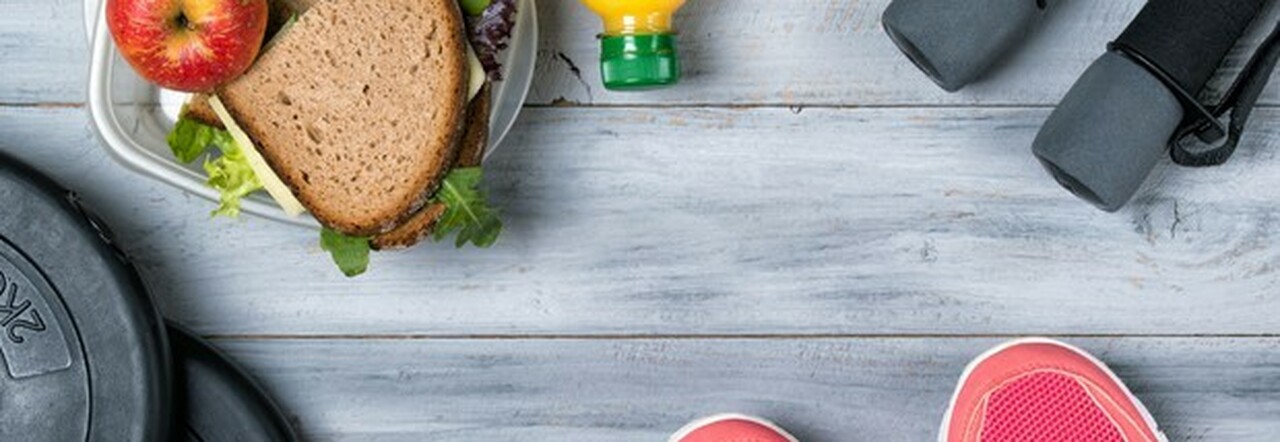A true guide that offers athletes a healthy diet starting from breakfast. Nutrition and lightness are the keywords that should characterize the ideal breakfast for those who practice sports. It is essential that the first meal of the day is healthy, genuine and a source of energy, but also a moment of relaxation and gratification, to start the day well. A few days before the start of the Tokyo Olympics, "Io Comincio Bene", the campaign of Unione Italiana Food that for several years promotes the value of this meal in Italy, with the advice of the sports nutrition expert, Michelangelo Giampietro, reiterates its importance through a guide of guidelines dedicated to the first breakfast of the professional and amateur athlete. "Nutrition allows us to acquire energy and nutrients necessary for maintaining good health: only a healthy athlete can train to the best of his abilities, hoping also for an optimal race result", explains Giampietro. "Breakfast fits into this program of correct nutrition: the hourly distribution throughout the day of food includes 5 appointments, breakfast, lunch, dinner and two snacks (one mid-morning and one mid-afternoon) - he continues - Among these, breakfast is the fundamental meal because we come from the night's fasting, during which we do not take in either liquids or solid foods, so upon awakening our body is in a condition of energy and nutritional crisis and needs to be replenished appropriately to ensure the best possible efficiency, both physical and cognitive, from the early hours of the morning".
Mediterranean diet and pasta, not just for athletes: "No to diets that are a trend"
In the morning, it is always better not to train on an empty stomach. "After the night's fasting we are dehydrated and low on energy, because during the night we have used our body's carbohydrate reserves. A molecule called glycogen, made up of chains of single glucose molecules accumulated in both the muscles and the liver, allows us, in periods of fasting, to detach glucose molecules from the liver's glycogen, put it into circulation and maintain constant blood sugar. It is a mechanism that the body uses to avoid those negative and contrary phenomena not only to sports practice, typical of hypoglycemia. Among these: drowsiness, sweating, fatigue, feeling of empty head and poor balance, headache, difficulty concentrating and calculating, reduced precision in movements", comments the expert. In general, the athlete's breakfast should cover 20-25% of the total daily energy and it is essential that it is structured by conditioning the choice of foods based on the training or race time. Breakfast should be measured based on the time available before starting training and on how digestible what we introduce is. Obviously, the more digestible a food is, the less time will be needed to pass before training, which in this case can also be more intense. From swimming to fencing, from tennis to cycling, to triathlon, every sport has its own rules as well as its ideal breakfast. For example, swimmers should prefer light and digestible foods, while triathletes hydrating and energetic foods, few proteins and no fats or fibers for tennis players and super 'reinforced meals instead for cyclists.
The "Summer Games", getting back in shape after the anti-Covid vaccine
But beyond the differences that exist between the various sports disciplines, each with its own characteristics and with a different nutritional need, for all athletes breakfast must be complete, balanced and digestible. As Giampietro points out: "The athlete's breakfast, like that of the general population, should be as complete as possible. As for liquids, in addition to water, all drinks, from tea to fruit juice, to centrifuges, to milk, to coffee, to barley, are fine. To achieve good hydration it is important to take a generous amount of liquids (2-2.5 liters per day), to sip and not to concentrate in large quantities a few times during the days. The drinks can be indifferently hot or cold, depending on taste and seasonal temperatures. Also, fresh fruit and yogurt, for breakfast, provide good amounts of liquids. As for the solid component, instead, it must be varied, catering to everyone's tastes".
So, what is better to bring to the table for the athlete in the morning? The typical sweet Italian breakfast is an excellent solution, being able to alternate drinks such as barley, coffee, tea, milk, yogurt, juices, fruit juices, but also cereal-based products (bread, biscuits, toasted slices, whole or non-cereal flakes, muesli, packaged or homemade baked goods with few fats), spreadable products, sweets and fresh seasonal fruit. If, on the other hand, you opt for a salty breakfast, free way to the right mix of cold cuts (lean ham or bresaola or turkey breast), eggs and low-fat cheeses or ricotta, without forgetting the correct weekly consumption frequencies, but without giving up seasonal fruit or a fruit juice, a glass of milk or, alternatively, a yogurt with cereals. For both menus, milk is a drink not to be underestimated. Being made mostly of water, it is a valuable source of liquids, able to hydrate the body very well not only for those who do sports. In milk there are also sugars and proteins, even in the skimmed version, which help each other to promote the anabolic processes so important, especially in the immediate post-training/race.

